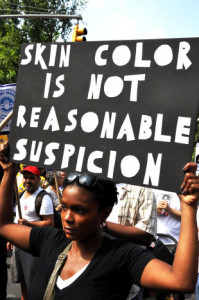

Critics of the U.S. criminal justice system such as Michelle Alexander and Bryan Stevenson have assailed the rise of mass incarceration with its disproportionate impact on people of color. The war on crime that began in the 1970s was supported by many African American leaders in the nation’s urban centers. The first substantial cohort of black mayors, judges, and police chiefs took office amid a surge in crime and drug addiction. Many prominent black officials, including federal prosecutor Eric Holder, feared that the gains of the civil rights movement were being undermined by lawlessness. They thus embraced tough-on-crime measures, including mandatory sentencing and aggressive police tactics and what Angela Davis called, the prison-industrial complex. In the face of skyrocketing murder rates and the proliferation of open-air drug markets, African-American officials and community leaders believed they had no choice. But the policies they adopted would have devastating consequences for residents of poor black neighborhoods.
James Forman Jr. is a Professor of Law at Yale Law School. and was a law clerk for Supreme Court Justice Sandra Day O’Connor. After clerking, he joined the Public Defender Service in Washington, D.C., where for six years he represented both juveniles and adults charged with crimes. During his time as a public defender, he became frustrated with the lack of education and job training opportunities for his clients. He co-founded the Maya Angelou Public Charter School, an alternative school for school dropouts and youth who had previously been arrested. His articles appear in The New York Times, The Atlantic and other publications. He is the author of Locking Up Our Own: Crime and Punishment in Black America.
- KBOO


